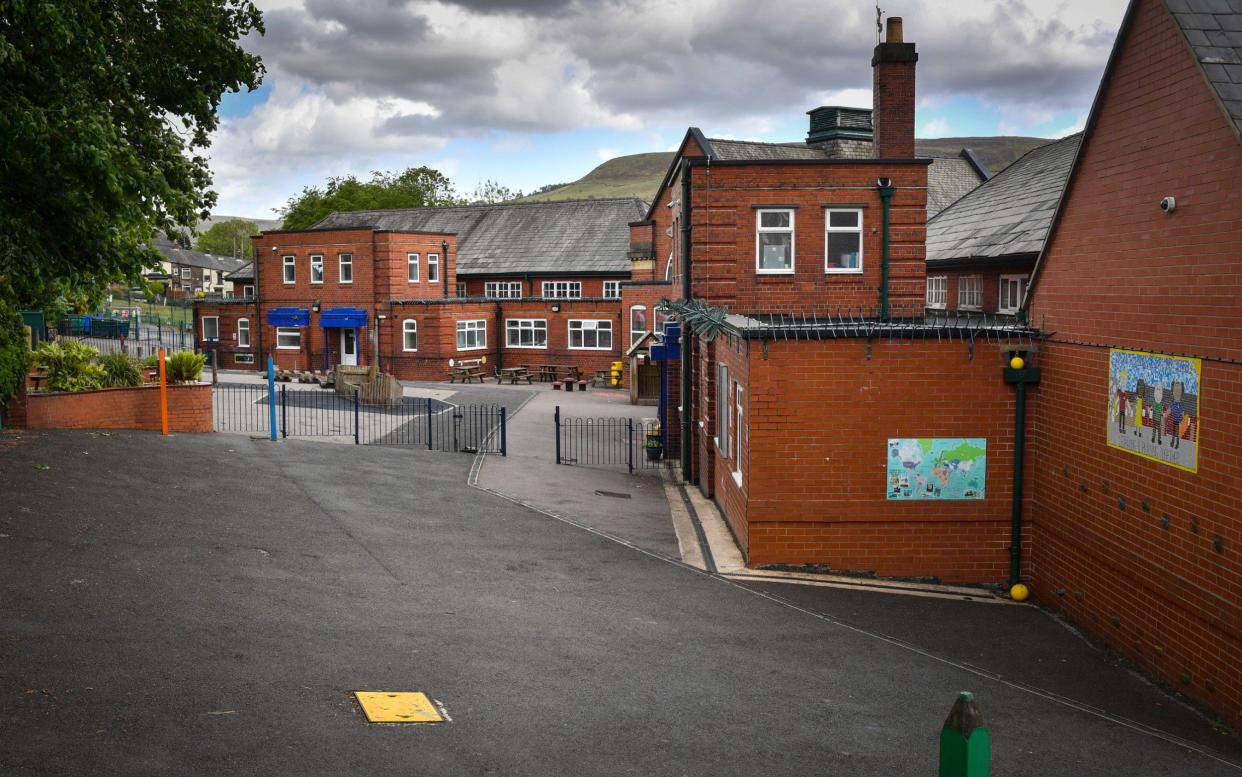Councils must 'justify their actions' if they refuse to reopen primary schools next week


Councils could be told to explain publicly their reasons for not allowing primary schools to open next week amid Government concerns that as few as a quarter will restart classes.
Government officials are hoping that regional school commissioners will be able to exert some pressure on local authorities to encourage primary schools to reopen on June 1.
There has been private frustration in Whitehall that more than 50 councils expect their schools to stay closed despite being given detailed guidance about a safe return.
One source said: "It is like flat pack furniture - yet some people are refusing to read the instructions, either for ideological reasons or because they are just too queasy.
"They will have to justify their actions. There is work going on to make sure that, if schools and local authorities say we can't do this until a certain date, they will have to explain themselves."
It came as 124 academy primaries with a roll of over 45,000 children aged five to 11 said they will be reopening their schools for Reception, Year One and Year Six.
Separately, private schools are pleading with ministers to allow more of their primary school-aged pupils to return to the classroom, saying that their “hands are tied” without permission from the Government.
Schools can only open from June 1 once England has moved from the first step to the second step of easing lockdown. Ministers are aware that members of the public remain deeply concerned about an early return of schools risking putting their children in danger.
A survey carried out for The Telegraph found that mothers are more worried about their children returning to school than fathers. The study by ORB International also found that the majority of parents - 61 per cent - were not prepared to allow their children to go back to school, regardless of their age.
A senior Downing Street source said ministers were realistic about the return to school saying: "You are not going to get a situation where you get 100 per cent of schools going back, you will probably only get 20 to 25 per cent first but it will pick up."
The hope is that England will follow other countries like Denmark where the return to school has built slowly.
However, Judith Blake, the education spokesman for the Local Government Association, said that 25 per cent was "optimistic", saying that the response from parents about returning to school had been "very low" in some parts.
Gavin Williamson, the Education Secretary, has been building alliances for the reopening, using the skills that he brought to the fore in the House of Commons as Government chief whip.
Mr Williamson has been adopting a low profile in a bid to persuade rather than browbeat the schools into reopening.
Parents will not be fined if they refuse to send their children back to school. An advertising campaign is planned across social and local media to make clear that schools will be made safe for the return of pupils.
Schools have also been encouraged to make their own "return to school" videos, hosted by the headteachers, to reassure parents.
One departmental source said: "We have been in listening and engaging mode. We expected people to have some trepidation because we are recovering from a global pandemic." Academy trusts contacted by the Telegraph made clear they had no such worries about returning to teaching. John Murphy, chief executive of Oasis which runs 31 primary schools said: "We’ve seen a groundswell of staff who want to come back and get on with it now."
Julian Drinkall, chief executive of Academies Enterprise Trust which has 32 primary schools, said he was "putting in place measures to help create as safe an environment as is possible".
Dame Rachel de Souza, chief executive of Inspiration Trust which has five primary schools, added: "We want to keep our school community as safe as possible. If the Government says it's safe for children to return, we're ready to welcome them back after half term."


